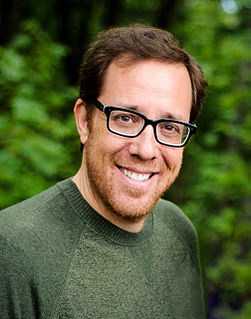A Quote by John Locke
He that uses his words loosely and unsteadily will either not be minded or not understood.
Related Quotes
An actor uses his body as a tool and an instrument. In the same way a musician plays an instrument, the actor uses his body to convey feeling and emotion. An animator uses a pencil or a computer to create the same thing, the same exact way... An actor is taking words that are not his own, and he has to bring some kind of authentic life to those words. It's the same goal, to create this authentic life. Even if it's a drawing, or if it's a cartoon, you're still trying to create authenticity because, if the character emotes authentically, it has a power to connect with the audience.
The difference between prose logic and poetic thought is simple. The logician uses words as a builder uses bricks, for the unemotional deadness of his academic prose; and is always coining newer, deader words with a natural preference for Greek formations. The poet avoids the entire vocabulary of logic unless for satiric purposes, and treats words as living creatures with a preference for those with long emotional histories dating from mediaeval times. Poetry at its purest is, indeed, a defiance of logic.
Anyone who has undergone home repair lately knows that your everyday artisan uses language so loosely and makes false promises so glibly as to make your politicians, even the presidential candidate, seem like a model of accuracy and rectitude. 'Be there Wednesday at nine,' the workman will tell you. It is a lie. He is humoring you. He says it to silence you, the way you tell a child you will take it to Disneyland if it will stop crying.
Every man speaks and writes with intent to be understood; and it can seldom happen but he that understands himself, might convey his notions to another, if, content to be understood, he did not seek to be admired; but when once he begins to contrive how his sentiments may be received, not with most ease to his reader, but with most advantage to himself, he then transfers his consideration from words to sounds, from sentences to periods, and, as he grows more elegant, becomes less intelligible.
It is the interest of every man to live as much at his ease as he can; and if his emoluments are to be precisely the same, whether he does or does not perform some very laborious duty, it is certainly his interest, at least as interest is vulgarly understood, either to neglect it altogether, or, if he is subject to some authority which will not suffer him to do this, to perform it in as careless and slovenly a manner as that authority will permit.








































